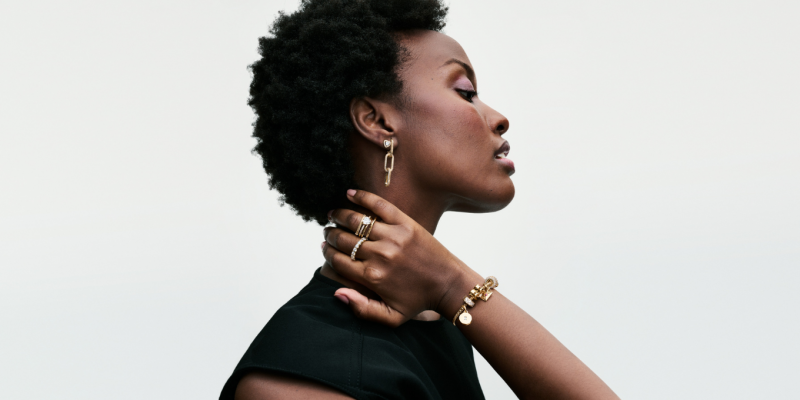Life and Love
Lying to your lover
When is it okay to play fast and loose with the truth?
by : Alexandra Shimo- Jan 26th, 2011

My boyfriend Ben had just met my parents for the first time and was understandably nervous about their reaction. “So, what did your mom think of me?” he asked tentatively when we were alone later that night. Trying hard to appear caring and considerate, I looked up into his gentle blue eyes and said, “She says you reminded her of Piggy from
Lord of the Flies.” Okay, I didn’t say that. But if I had been honest or determined to wreck the relationship from the start, I would have fessed up that my mother thought I was dating an asthmatic, overweight intellectual. Instead, I lied. It has been my default pattern with men since I started dating in my teens.
Lying to my lovers has come a little easier than perhaps I should freely admit. I’m a journalist, so I’m supposed to be—at least, in theory—committed to the truth. Not that I go around quoting Tom Cruise in
A Few Good Men, but I spend my days dealing with facts and fact-checkers, and recently it struck me that my own quotes wouldn’t pass muster. Why don’t I feel guilty? Does this make me a freak?
It turns out that I’m not in the minority when it comes to failing the ninth commandment. Most of us will tell three to 12 whoppers within 10 minutes of meeting someone for the first time, according to research by Robert Feldman, a professor of psychology at the University of Massachusetts and author of
The Liar in Your Life. And we aren’t even ashamed about our duplicity: In a study by Wade C. Rowatt, an associate professor of psychology and neuroscience at Baylor University in Texas, 90 percent of college students admitted to lying to improve their chance of getting a first date. Rather than spinning full-fledged fictional tales, they merely stretched the truth (like “I graduated from Harvard [not Ryerson]” or “My parents’ second home is in the south of France [not Montreal]”). Of course, the other 10 percent might be lying about whether they had lied, or they still might be stuck at home in their parents’ basement, surfing Lavalife.
Lying greases the wheels of social interaction, allowing us to tell others what they want to hear, explains Feldman. Suppose your partner asks if you are attracted to someone else. An informal poll of my friends suggeststhat the truth is not the preferred strategy. For example, Mike, a Toronto-based thirtysomething writer who didn’t want to use his real name, says that he focuses on one of the woman’s features and makes it negative. “I’ll say that I don’t like the way she smiles or that her nose is too big. The specific reason is key because it concretizes the fact that you’re not attracted to her and ‘proves’ that you’re not lying, even though you are.”
Rowatt says that, as a society, we’re so ready to forgive these deceits that we have given them a more pleasing name: white lies. These deceptions are rarely viewed as morally reprehensible because their intent is to help another rather than sell yourself, he says. And if you mislead someone in this way, it’s highly unlikely that you’ll be found out. A 2006 study by psychologists Bella DePaulo and Charles Bond Jr. found that people distinguish the truth only 47 percent of the time. In other words, guessing randomly has a higher success rate than studying past history and facial expressions and making a reasoned judgment call. Feldman calls itthe “liar’s advantage,” noting that most people will assume you’re telling the truth because it’s too awkward to assume otherwise.
Does that mean it’s ok to lie? Find out on the next page!
Find out if content is the new happy?
Relationships: Can you keep a secret?
Does that mean that you should lie to your lover or spouse?
It depends on the type of relationship you want, explains
Beth Mares, a marriage counsellor based in Toronto. “For a couple that wants a very honest, intimate relationship, white lies would be out of place,” she says. “Also, when there are trust issues in a relationship, white lies are likely to cause problems. If one or both partners have been deceptive in the past or have difficulty with trust, it’s best to be open, but it’s also good to be tactful and positive.”
I didn’t stay with Ben because it was too easy to lie to him, and I later realized that this was because I didn’t care about him enough to be truthful. I didn’t want real intimacy and, as a result, I was emotionally closed. By contrast, my new boyfriend and I have promised that we’ll always try to be truthful, no matter how difficult the situation. I have yet to introduce him to my mother.
Read more:
Does your relationship need a cleansing? Find out here!
Boudoir boredom: How to bring back the love
Date night: Hot new dating trends
Newsletter
Join our mailing list for the latest and biggest in fashion trends, beauty, culture and celebrity.
More from Life and Love
Read Next

Fashion
Tap Into the Tenniscore Aesthetic With These Stylish Pieces
Game, set, match!
by : Lauren Knowles- Apr 23rd, 2024

Fashion
Reitmans and The Birds Papaya Just Dropped The Dreamiest Spring Collection
Welcome to Sarah's Playhouse.
by : Melissa Fejtek- Apr 22nd, 2024

Fashion
This Jewellery Brand Has a Whole New Look And It’s Everything
Here are the seven pieces we’re coveting.
by : ELLE Canada- Apr 10th, 2024





